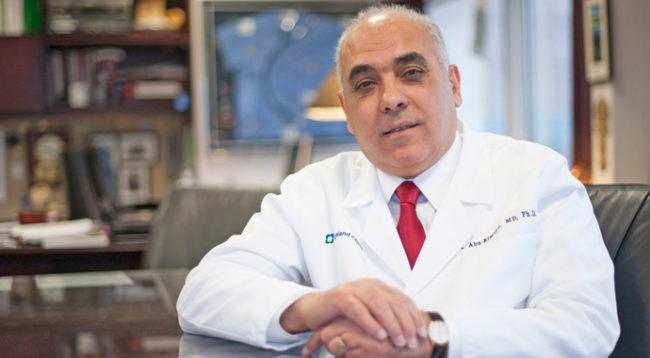Congenital intestinal malrotation, also known as gut malrotation, can cause the small and large intestines to twist, which potentially can lead to the development of life-threatening complications. The condition, often overlooked or misdiagnosed, can affect people at any age.
Drawing on 30 years of experience in digestive surgery and transplantation, Kareem Abu-Elmagd, M.D., Ph.D. — director of Cleveland Clinic’s Center for Gut Rehabilitation and Transplantation — developed a new gut malrotation correction surgery to alleviate the gastrointestinal symptoms as well as prevent the need for gut transplantation.
The study, published in the Annals of Surgery, also defines the disease presentation in both children and adults, identifies the patients at risk of intestinal loss, and assesses the long-term outcomes after different surgical interventions.
“During the procedure, the digestive organs are rearranged and fixed in their proper anatomic locations, which prevents the intestines from twisting and resolves the digestive symptoms with improved quality of life,” said Dr. Abu-Elmagd.
Malrotation occurs in about one out of every 500 births in the United States. During pregnancy, a baby’s bowel normally rotates 270-degree counterclockwise and then becomes fixed in position.
This study is the largest series worldwide with the longest follow-up in the literature. The new operation (“Kareem’s procedure”) was performed on 80 patients with intact gut and disabling symptoms – 92% were adults and 8% were children. Soon after surgery, the digestive symptoms improved significantly. With up to 10 years of follow-up, most of those patients are able to eat normally and have a better quality of life. None of the patients developed volvulus following the Kareem’s procedure.
“The new operation is safe and effective, and can be performed in patients of all ages with intestinal malrotation, especially in the presence of disabling symptoms and those who had volvulus after Ladd’s,” said Dr. Abu-Elmagd. “It is my hope that this procedure can become part of the surgical training for both pediatric and adult surgeons.”
A feasibility study evaluating a laparoscopic approach to safely perform the procedure is currently underway at Cleveland Clinic.








 Dr. Bilal Philips
Dr. Bilal Philips